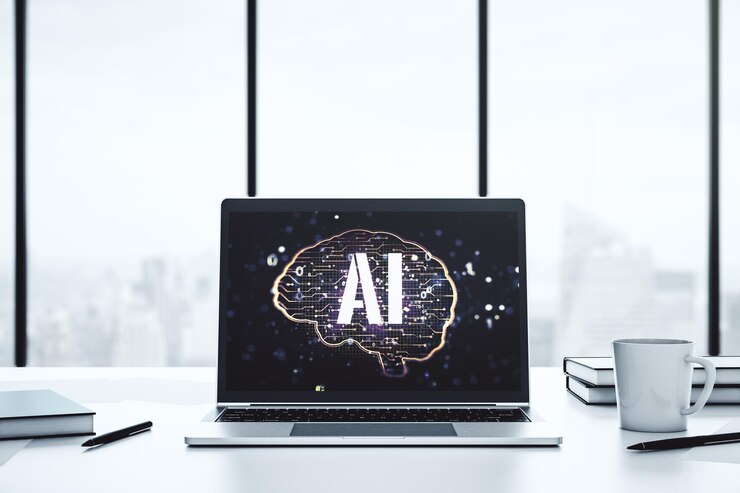Home / Blogs Detail

Ethical Hacker: The Guardian of Cyberspace
Ethical hacker Introduction:
Ethical hacker, it's just not feasible to live without the internet. However, it comes with several inherent risks like data theft, cyberattacks, and security breaches. Filling the gap in this virtual environment is the prophet of ethics in hacking. These ethical hackers use their skills and expertise to protect systems and find information about security vulnerabilities before they are found and exploited by malicious hackers.
What is an Ethical Hacker?
An ethical hacker, also known as a white-hat hacker, is a cybersecurity professional. They mimic the techniques of malicious hackers but with permission. Their goal is mainly to identify and fix any vulnerability in a system, application, or network. Ethical hacking is part of an organization's cybersecurity strategy.
Types of Hackers
| Type | Description | Motivation | Examples |
| White Hat | Authorized individuals improving security | Legal and ethical goals | Ethical hackers, pen-testers |
| Black Hat | Unauthorized attackers causing harm | Profit, revenge, disruption | Malware creators, scammers |
| Grey Hat | Unapproved hackers, sometimes reporting issues | Recognition, curiosity | Independent security testers |
| Script Kiddie | Inexperienced hackers using pre-made tools | Thrill, bragging rights | Novices |
| Hacktivist | Hackers promoting political or social causes | Activism, awareness | Anonymous |
Skills Required to Become an Ethical Hacker
One has to acquire technical skills combined with a set of important soft skills to qualify as an ethical hacker. Here are the key abilities required.
- Networking Knowledge: TCP/IP, DNS, and firewall-based protocols.
- Programming Skills: Learn Python, Java, or C++ to analyze vulnerabilities in code, which can be evaluated with such languages.
- Operating Systems: Master Linux, specifically Kali Linux, which is designed for security testing.
- Cybersecurity Frameworks: Study NIST, ISO 27001, or OWASP Guidelines.
- Social engineering awareness: Here, the person should understand human-based attack techniques like phishing.
- Problem-solving skills: Be a critical thinker to outsmart the cybercriminals
The Role of an Ethical Hacker
Modern-day ethical hackers have become indispensable in the field of cybersecurity. The role performed by such ethical hackers include:
- Penetration testing: Simulating attacks for the identification of vulnerabilities.
- Risk assessment: Identifying risks and suggesting risk mitigation strategies.
- System hardening: Security hardening by patching vulnerabilities.
- Incident response: Recover breaches and investigate the cause.
- Compliance audit: Audit facilities to meet regulatory requirements.
Tools Ethical Hackers Use
| Tool | Purpose | Popular Options |
| Vulnerability Scanners | Identify system flaws | Nessus, OpenVAS, Qualys |
| Exploitation Tools | Test discovered vulnerabilities | Metasploit, Core Impact |
| Network Analyzers | Monitor and analyze traffic | Wireshark, tcpdump |
| Password Crackers | Test password strength | John the Ripper, Hashcat |
| Social Engineering | Mimic phishing or deception techniques | SET (Social-Engineer Toolkit) |
Advantages of Ethical Hacking
The benefits of ethical hacking for organizations include the following:
- Prevention of data breaches: seeks out loopholes before they are effectively exploited by attackers.
- Compliance guarantee: Ensures consistency with the industry regulations as like GDPR, HIPAA, or PCI DSS
- Improved System Performance: Elimination of inefficiencies in the infrastructure
- Employee Training: Educates employees on security best practices.
Challenges Ethical Hackers Face
Ethical hackers face a number of challenges in their work:
- Continuously changing threats: Methods are being developed constantly by hackers..
- Resource constraints: Organizations run short on different budgets or tools..
- Legal constraints: Laws vary from country to country, hence making certain actions risky
- Ethical dilemmas: Walking on the thin line of happening between what is legal and what is questionable.
Frequently Asked Questions
What qualifications are needed to become an ethical hacker?
To be a certified ethical hacker, it requires a solid background in IT first. Although most people tend to earn a degree in computer science to become such a hacker, earning certifications is just as credible in the industry.
Accrediting Certifications:
- Certified Ethical Hacker (CEH)
- OSCP: Offensive Security Certified Professionals
- GIAC GPEN: Penetration Tester
- CompTIA Security+
Also, practical experience in a role like penetration testing or cybersecurity is in itself an important factor to consider. Many companies would value real 'on-the-job' know-how over the degrees.
How is ethical hacking different from traditional hacking?
Intent and legality are the two primary distinguishing factors.
| Aspect | Ethical Hacking | Traditional Hacking |
| Authorization | Fully authorized by the organization | Unauthorized and illegal |
| Objective | Strengthen systems | Steal data or cause harm |
| Approach | Transparent and collaborative | Secretive and malicious |
| Legal Status | Compliant with laws | Punishable under cybersecurity acts |
Are Ethical hackers in demand?
Indeed, ethical hackers are in high demand these days because most organizations are willing to pay a hefty buck to ward off the rising attacks on their systems. Reports of the industry claim that the global cybersecurity market is bound to blossom at an alarming rate. Besides, ethical hackers occasionally earn good bucks and also enjoy stable employment.
Can ethical hacking be self-taught?
Undoubtedly! Most of the ethical hackers begin as self-learned professionals. Online courses, books, and virtual labs can make learning easier.
Self-Learning Steps in Ethical Hacking:
- Learn about networking fundamentals with appropriate tools like Cisco Packet Tracer.
- Learn programming languages such as Python and Bash. Practice coding.
- Investigation on ethical-hacking platforms such as Hack The Box or Try Hack Me.
- Enhance your digital sophistication through certifications like CEH or OSCP.
It will take self-discipline and curiosity, one's best companions in this journey.
Ethical hacker Conclusion
Indeed, ethical hackers are great heroes in the digital age. To keep information privacy intact and to protect an organization from any breach, their work all over the world has become more and more essential. Electronic threats take a new shape every passing day.
If you dream of becoming an ethical hacker, be sure that the demand is really high, and opportunities are wide open. If equipped with all the necessary skills, certifications, and tools, you can take a huge stride in the world of cybersecurity.
Along with the digital progress, duties of ethical hackers increase. So be alert, be curious, and contribute to a beautiful cyberspace. Ethical hacking is not only a job, but it's a mission to safeguard all in a digital frontier.
Popular Blogs

Dec





